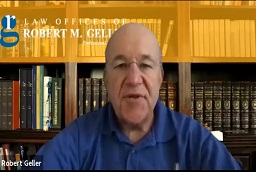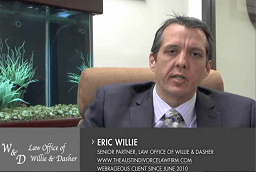Leveraging remarketing campaigns can be an excellent way to boost your conversion rate, increase search traffic for your brand, and reduce shopping cart abandonment. Instead of having only a single interaction to convince browsers to convert, by utilizing remarketing you’ll be able to serve ads to the same targeted audience multiple times.

But because remarketing add complexity to your digital marketing campaigns, it can be more challenging to optimize your results by using remarketing. Here are six common remarketing mistakes that many advertisers make when developing their remarketing campaigns, and our take on how you can avoid them.
Table of Contents
1. Failing to Remove Converted Users from Your Target List
One of the major benefits of well-run remarketing campaigns is an increase in new business. Oftentimes, advertisers fail to take these converted leads or customers off their remarketing target list. Once a user converts, you must make sure that they’ll be removed from your remarketing list. This practice helps avoid wasting ad spend on serving ads to existing customers.
However, it’s important that you do not omit your converted audience from your retargeting list indefinitely. There are some common circumstances where you can and should advertise to previously converted users. If you remove every converted user from your target account list, you risk preventing potential repeat purchasers from seeing ads for additional products and services. Instead, set time frame for your converted user blocks to “expire” after a set amount of time — many experts suggest somewhere between 45-90 days — before they can be advertised to again.
2. Cannibalizing Your Own Audience
If you have multiple retargeting campaigns running simultaneously, it is critical to set up your lists so that your audience doesn’t get targeted by multiple campaigns simultaneously. Targeted prospects might end up seeing too many ads, or they may see ads for a campaign that is not the best fit for their needs. Additionally by “cannibalizing” your own audience, you’ll be skewing your campaign performance data and won’t be able to gauge how well your campaigns are performing on their own.
When you set up your remarketing campaigns, be sure to subtract campaign lengths from each other so that viewers are not served ads for multiple campaigns simultaneously. For example, you may set one campaign to run for 7 days. In order to make sure that the audience for this campaign doesn’t receive ads from your 2-week campaign as well, you should set the parameters to the latter campaign for 14 days minus 7 days.
3. Flooding Your Audience with Remarketing Ads
No one likes feeling like someone is following them around online, and there’s no better way to make prospective buyers feel like you’re chasing them across the Internet than for them to see your ads everywhere they go. Oversaturation can have a negative impact on the success of your remarketing campaigns.
Regulate the number of ads you serve to your audience to keep your brand, products or services top-of-mind, but not so much that they become ineffective. Set a frequency cap on your campaigns to avoid over-serving ads to your audience. There’s no magic number for the correct number of engagements for any given range of time, so make sure to A/B test your frequency caps to find what’s best for your audience.
4. Targeting Too Narrow of an Audience (or Too Broad)
Retargeting is often seen as a way to hone in on a specific subset of your audience to increase conversions. As a result, advertisers often fall into the trap of chasing after too-specific of an audience. AdWords requires at least 100 active visitors in the last 30 days for Display Network remarketing lists, and at least 1000 for search remarketing lists. On the other hand, not everyone who visits your site will be a perfect fit for your services. If you try to broaden your remarketing list parameters to target everyone who lands on your website, you’ll end up wasting ad spend chasing after bad leads.

Need Google Ads Management Help?
Free Google Ads account review for
qualified clients
Almost 20 years experience
If you aren’t getting valuable results from your remarketing campaigns, it may be time to reevaluate whether you’re targeting too specific or too broad of an audience. For example, plenty of names are being added to your remarketing lists, but none are converting, your audience may be too broad. Finding the best parameters for your remarketing campaigns can be challenging. Oftentimes, working with PPC professionals can be the fastest way to hone in on the correct parameters for your remarketing campaigns so you can see results more quickly.
5. Setting Campaign Time Durations Incorrectly
AdWords sets the default length of remarketing campaigns for 30 days, but this doesn’t mean that 30 days is necessarily the best length of time for remarketing success. You can shorten this, or you can extend it up to the maximum of 540 days. However, if you cut your campaigns too short, and you might not get the exposure you need. Let them run too long, and you’ll likely see diminishing returns for your advertising dollar and end up wasting advertising dollars.
The most efficient duration of your campaigns depends on the audience’s buying behavior. If you’re selling real estate or other goods that require a longer buying cycle, you may need a longer duration for effective retargeting. For smaller or more urgent purchases, such as concert tickets or certain legal services, you might get the best returns from campaigns that are only a few days in length. There’s no universally “optimized” campaign length, but testing out different campaign durations will help you find the best fit for your market.
Remarketing with Webrageous
Working with the PPC experts at Webrageous can help you ensure that your remarketing campaigns give you the optimal results. Our team of PPC managers has worked with many clients to successfully improve their conversion rates and build their business with remarketing campaigns. To learn more about how Webrageous can develop and manage a more effective remarketing strategy for your business, contact us today.
Image Source: Pixabay



















